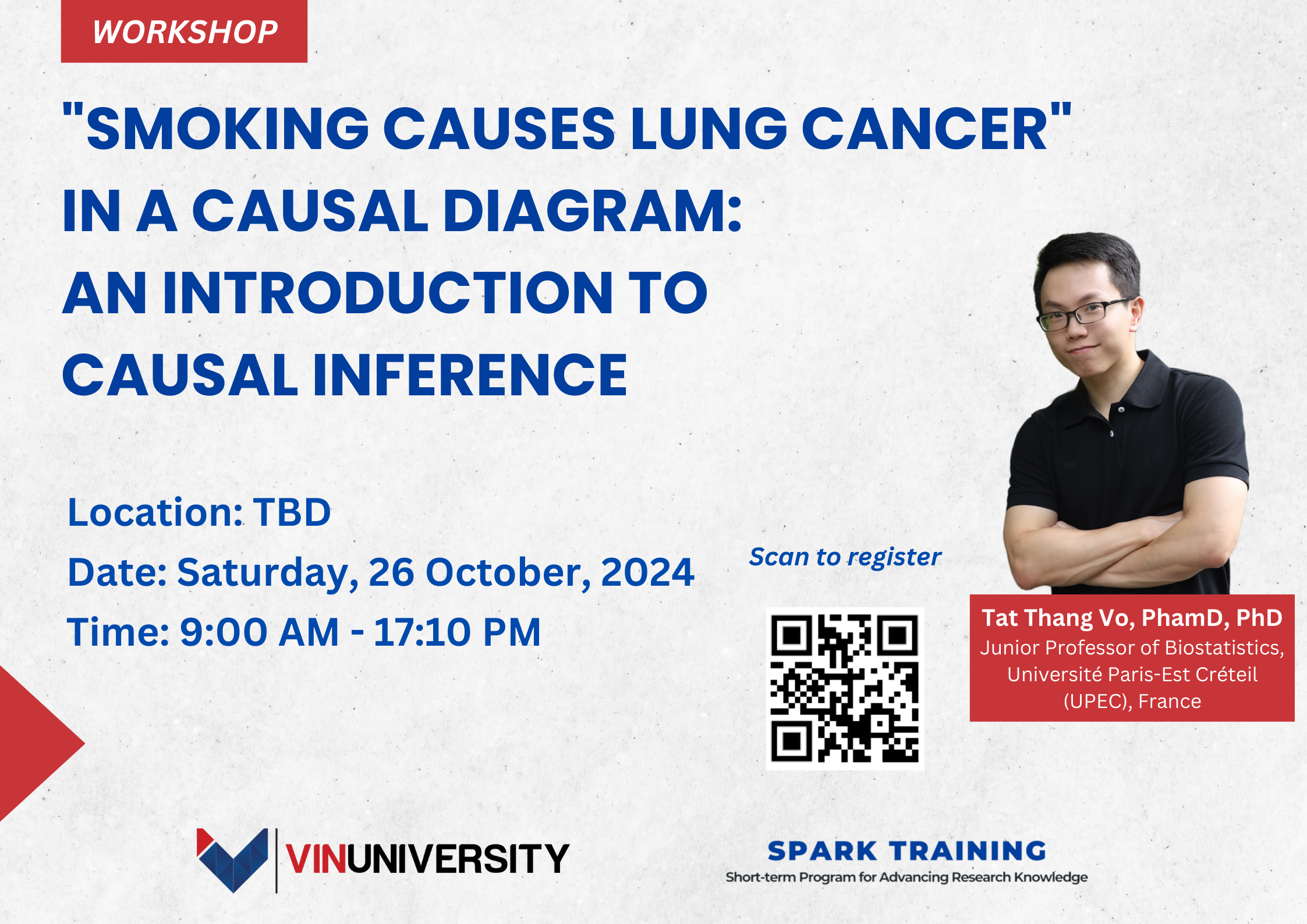Smoking Causes Lung Cancer In A Causal Diagram: An Introduction to Causal Inference 2024

Pricing: Free to VinUni students, resident doctors, faculty, clinicians and pharmacists, and affiliated
Students from outside VinUni who registered and paid for other SPARK courses could also join this workshop for free.
About the instructor:
Tat-Thang Vo is a junior professor in biostatistics at the University Paris Est Créteil (UPEC), France. Previously, he received a BSc. (Hons) in Mathematics at The Open University (UK), a Master in Epidemiology at the University Paris Cité (France), and a Pharm.D. at Hanoi University of Pharmacy (Vietnam). In 2020, he completed a Ph.D. in Biostatistics jointly from Ghent University (Belgium) and University Paris Cité (France), with funding from the European Union Horizon 2020 program. Prior to joining UPEC, he was a postdoctoral researcher at Wharton Department of Statistics and Data Science, University of Pennsylvania (USA). Thang’s research primarily concerns the development of causal inference methods to assess the benefits and risks of medical interventions on human health. One important feature of his works is the application of semi-parametric theory to develop flexible, data-adaptive estimation strategies for identifiable causal parameters. He is also interested in the applications of causal methods to clinical questions in medicine, psychology, and pharmacoepidemiology.
About this workshop:
This workshop will give you a brief introduction to causal inference, elements and applications of directed acyclic graphs (DAGs)
Who should participate in this workshop?
Students and researchers interested in causal inference.
- Training date, time, and location:
- 9:00 – 17:10, Saturday 26 October 2024
- VinUniversity, Ocean Park, Gia Lam district, Hanoi
- Learning Objectives:
- Understand the principles of causal inference and causal graphs
- Identify key elements of Directed Acyclic Graphs (DAGs)
- Analyze the impact of missing data, measurement bias, and variable selection
- Apply DAGs to practical scenarios
- Explore how DAGs can be used to address challenges in research
- Languages:
This workshop will be delivered in English.
- Number of participants: 30 (maximum 50)
- Certificate: Upon the completion of the course, participants will receive a certificate of attendance.
If you have any questions, please contact us via this link:

